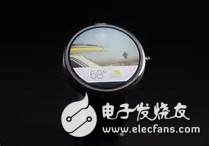Apple iWatch may not be a watch at all
There is an old joke inside Apple that Steve Jobs is surrounded by a "realistic distortion field": if you are too close to him, you will believe what he said. Many of Apple’s millions of users have become “believers†of the company, and many Apple investors have also earned a lot of money. However, Elmer-DeWitt believes that when reporting Apple, there is a bit of doubt that the spirit is not a bad thing. It should be true to listen to him. You know, he has been reporting Apple since 1982 and watching Steve Jobs run the company.
Apple's iWatch part has been secret, and rival Samsung and even Google's smart watches have begun to show their dew. However, according to various indications, the so-called Apple iWatch may not be a watch at all.
Google last week released the Android Wear platform for wearables and continues to expand the Android operating system previously released for developers. Recently, the promotional videos of the two Android Wears have been released. However, the release of this video may be to help Apple.

These two videos are undoubtedly superior in terms of production quality and promotional value, which is a good illustration of the many functions of a touch-screen watch after being connected to an already connected smartphone via wireless.
But as Benedict Evans pointed out, through video, we saw the design concept of smart watches that Google and Apple are different.
Evans has just become a partner in the Andreessen Horowitz fund. He wrote on his personal blog: "Google Wear's design philosophy is that smart watches are remote touch controls for Android smartphones. We might as well compare it with rumors about the new Apple 'Healthbook' application platform."
Screenshots of several leaks show that Healthbook records a range of health and fitness data in the form of cards, including moisture, blood pressure, blood sugar, heart rate, respiration and oxygen saturation.
It's hard to imagine a small watch that can cover many of these features, while still meeting the harsh aesthetics of Jonathan Ivey. But if Evans guessed it right, it doesn't have to satisfy both of these points.
Evans wrote: "Assuming Apple is actually developing a card-like health application like Passbook, what happens if you buy and open a 'Healthbook'-certified sphygmomanometer?"
"Maybe some people think that Apple will use the low-power Bluetooth technology to automatically detect surrounding devices and tell you the results, as iOS7 does now. Then users may also install Healthbook cards to manage the device...even Install the app on any device with sensors. As a result, Apple has built a plug-and-play personal health device platform that requires no proprietary applications, no native code, no app store, and no configuration."
“This may explain why Apple’s recently recruited 'wearable device expert’ doesn’t sound like a person developing a watch, it’s like developing medical devices that measure a variety of technical indicators. Because Apple intends to strengthen health care equipment instead of They are loaded into their own devices. In other words, simple sensors will be loaded into the phone (such as the pedometer that comes with the iPhone 5S), and some sophisticated devices will be activated through the Apple platform instead of integrating into Apple itself. In the device."
Evans said that the problem with Apple and Google is how the product code should be saved. Both companies claim that the "smart part" of wearables should be placed on a smartphone or tablet, which can be easily updated every few years.
Evans concluded: "The other part should be a normal sensor, or a normal screen, or both."
Educational Instrument;Student experimental equipment;laboratory training
Wuxi Lerin New Energy Technology Co.,Ltd. , https://www.lerin-tech.com
